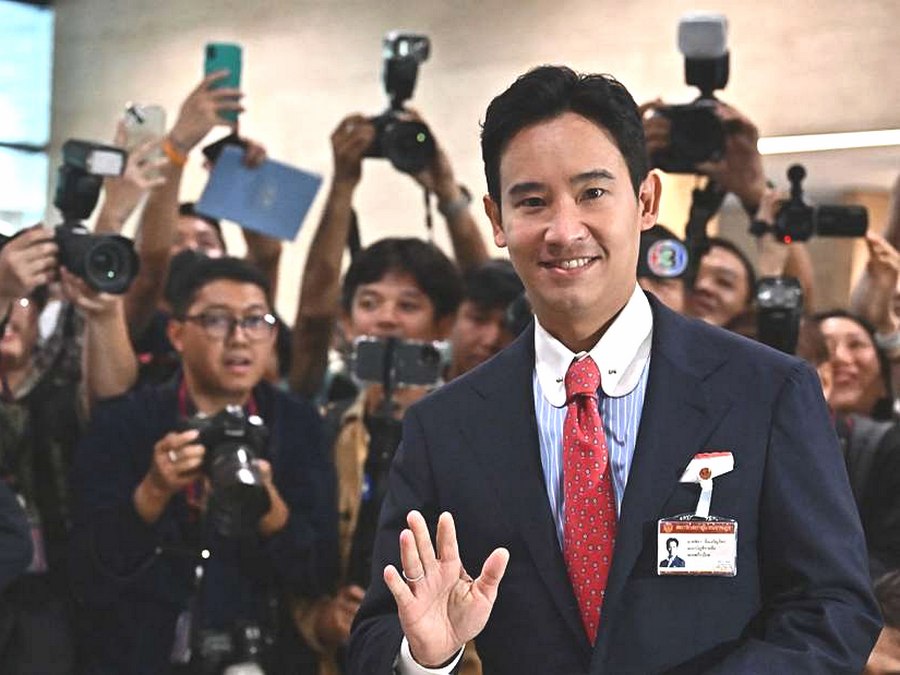
Leader of the Move Forward Party (MFP), Pita Limjaroenrat, says he will try to find more voting supporters after a joint meeting of newly-elected members of parliament and the unelected Senate failed to provide him with 375 votes to assume the highest elected office. Although 311 MPs out of 500 cast their vote in Pita’s favor, only 13 senators out of 249 appointments followed suit, leaving a shortfall of at least 51 approvals all told. This is not surprising as all senators were appointed by the military authorities soon after the 2014 coup.
A second vote, at which Pita will be eligible to stand again, will be held on July 19. But it will be hard for him to find all those extra senatorial votes. He may even get fewer next time as the majority put pressure on the “liberals” to abstain in the second round. The MFP is unpopular in military-backed and conservative circles because of its desire to reform the treason laws which some see as an attack on the institution of the monarchy. Other aspects of MFP ambitions which are controversial are the ending of compulsory military conscription and of huge monopolies which run parts of the Thai economy.
If Pita falls again at the second vote next week, it is more than likely that the second-biggest party in the MFP coalition, the Thaksin-backed Pheu Thai, will put up their own candidate as prime minister. Although many senators also dislike Pheu Thai, they would be more inclined to accept a more moderate prime minister who will not push for treason laws reform. MFP then faces the dilemma of whether to remain in the coalition, playing second fiddle, or to stand aside and join the opposition ranks, hoping to rebound at the next general election four years down the road. Pheu Thai would likely scramble at least 375 votes in a combined parliamentary vote with help from smaller parties in the House of Representatives as well as a sigh of relief from the military-backed senators.
Even if Pita, by some extraordinary good luck, was to be elected prime minister next week, he would face possible banning as an MP if he illegally held shares in a media company at the time of his nomination. Pita answers that the media company shares merely derived from a dead relative’s estate and did not involve an organization actually trading. These technical matters are now lodged with the constitutional court which has not yet begun to investigate the issues and may not hurry to do so. Other variables in the tense Thai political cauldron are whether MFP members, mostly young, will take to the streets once they feel their leader has been cheated of victory, or whether a small military-backed party in the lower house may propose a retired general as prime minister, relying on minority support amongst MPs but a big vote in favour by the unelected senators. The muddy waters may not clear any time soon.






